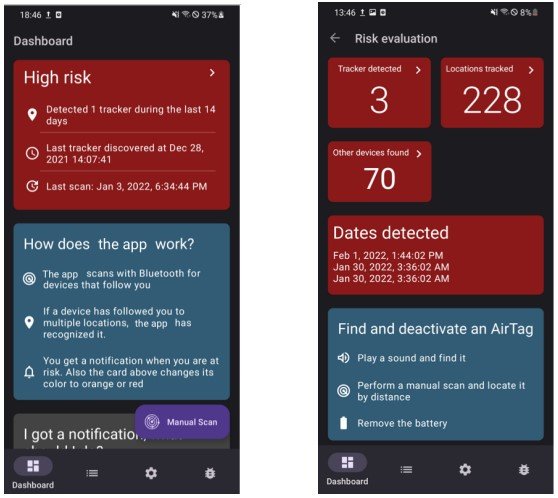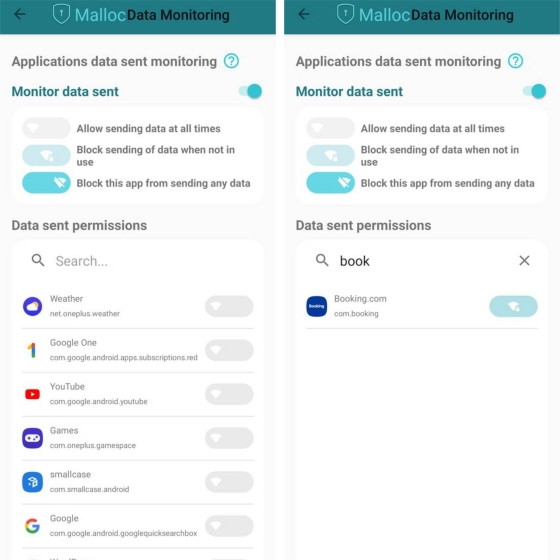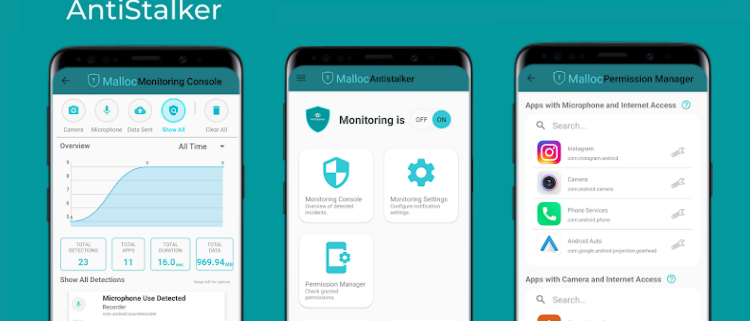Tag Archive for: app’
Free Android app lets users detect Apple AirTag tracking
/in Mobile Security
![]()
A small team of researchers at the Darmstadt University in Germany have published a report illustrating how their AirGuard app for Android provides better protection from stealthy AirTag stalking than other apps.
An Apple AirTag is a Bluetooth-based device finder released in April 2021 that allows owners to track the device using Apple’s ‘Find My’ service.
Unfortunately, AirTags have great potential for abuse due to their small size as people can slip them into people’s jackets, luggage, or even cars to track them without permission.
Although Apple has implemented an intricate anti-stalking system to prevent cases of abuse, stealthy AirTag tracking continues to remain a problem.
These features rely mainly upon identifying patterns of abuse, such as having an AirTag nearby that belongs to a different Apple account and serving warnings on the victim’s iPhone.
Apple constantly updates this system with stricter rules and additions, but as hardware hackers have proved repeatedly, there are many ways to evade detection and disrupt the warning routines.
In the case of Android users, the problem is magnified because Apple left them without an official way to locate AirTags until December 2021, when it released Tracker Detect on the Play Store.
Tracker Detect, however, pales in comparison to its iOS counterpart, as it will only inform the victim they are tracked if it’s commanded to perform a manual scan, and even then, it often misses nearby AirTags for no apparent reason.
A superior solution
The university researchers decided to do something about the Apple AirTag privacy problem in the Android world and reverse-engineered the iOS tracking detection to understand its inner workings better.
They then designed the AirGuard app, a fully automatic and passive detection anti-tracking solution that works against all Find My accessories and other tracking devices.

The app was released in August 2021, and since then, it has amassed a user base of 120,000 people. It can detect all Find My devices, including self-made ones like the cloned or modified AirTags, as the ultimate stealthy tracking tool.
The researchers have now published the…
Guard Your Privacy on Android with the Antistalker – Mobile Security App
/in Mobile Security
While Google is adding lots of privacy and security features to Android, they are not enough to protect your privacy. Google, being an ad company, does not block any trackers or restrict background data transmission between apps and web servers. If you want to guard your privacy on Android, I highly recommend you get the Antistalker – Mobile Security app. It’s an all-in-one app that brings data monitoring, intuitive mic and camera permission controls, a robust permission manager, and more to your hands. So without further ado, let’s go ahead and check out the best features of Antistalker – Mobile Security.
Antistalker – Mobile Security: Best Features Review (2022)
Data Monitoring and Blocking
One of the most important features of the Antistalker – Mobile Security app is its cool data monitoring capability. Similar to how cookies on websites track your activity online, Android apps also have a number of trackers working behind the scenes. They collect your location, storage, device model, battery info, and other private information. Some rogue apps even try to access your mic and camera in the background, which should not be allowed in the first place.
So with the data monitoring feature in the Antistalker app, you can track all the apps on your Android device that are sending data to their web servers. In fact, with this mobile security app, you can even block apps from communicating with their web servers. What we particularly like about this app is that there are three options to choose from: allow an app to communicate at all times, block an app when not in use, and third that completely block an app from sending any data. Talk about user choice, even in terms of privacy.

This granular set of options is great for users who want to fine-tune their privacy controls. For example, if you use a food delivery app, you would not want the app to collect your location in the background. In that case, use the second option and “Block sending of data when not in use” for that particular app. The best part is that you can customize these privacy controls for each and every app on your Android device, which is fantastic.
If you…
How the Open App Markets Act wants to remake app stores
/in Mobile Security
Last week, the Senate Judiciary Committee passed the Open App Markets Act, one of legislators’ latest attempts to limit big tech companies’ power — a big step toward opening up iOS and Android’s app stores. But the proposal has raised questions about moderation and security alongside praise from anti-monopoly watchdogs, mirroring a tech world debate about the perks and harms of walled gardens.
The bill is aimed at increasing competition in mobile computing, a field where plenty of people agree a few companies have too much power. But as a series of proposed amendments demonstrated, though, not everyone agrees where that power should stop.
What is the Open App Markets Act?
You can read the Open App Markets Act or S. 2710 for yourself — unlike some omnibus tech reform bills, it’s not that long. But basically, it says companies that operate app stores with more than 50 million US users shouldn’t engage in certain potentially anti-competitive behaviors. That includes:
- Requiring developers to use the company’s own in-app payment processor as a condition of using the store
- Penalizing a developer for offering better prices on another app store
- Restricting developers from directly contacting customers with business offers
- Using private analytics data from third-party apps to build its own competitors
- “Unreasonably” preferencing its own apps in search results
If a company that owns an app store also controls the underlying operating system, it also has to make it easy for users to perform the following tasks:
- Install third-party apps without using the App Store
- Choose third-party apps and app stores as system defaults
- Uninstall or hide preinstalled apps
Companies that break the rules could be subject to antitrust enforcement from the Federal Trade Commission, the Attorney General, and state attorneys general, as well as civil lawsuits from “any developer” who was harmed by the banned conduct.
Notably, the bill doesn’t explicitly cover app stores on every device. It defines the term as a “publicly available website, software application, or other electronic service” on “a computer, a mobile device, or any other general purpose computing device.” That…


